Cape Town, South Africa. Tense scenes unfolded on 30 September 2025 outside the Cape Town International Convention Centre when police forcibly removed climate activists who had chained themselves to a giant green “payment machine” at the entrance of Africa Energy Week, the continent’s largest oil and gas conference.
The protesters, dressed in orange jumpsuits, demanded that fossil fuel corporations including TotalEnergies, BP, Chevron, and Woodside Energy pay what they described as a $5 trillion “climate debt” for the destruction caused by decades of fossil fuel-driven climate change.
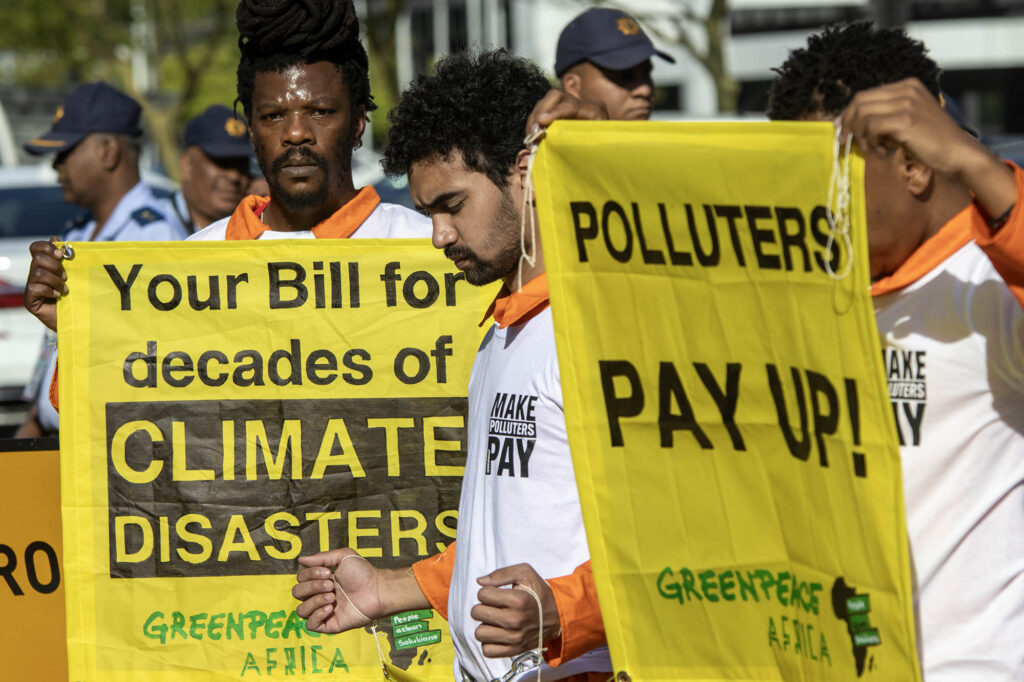
As they were dragged away by multiple officers, demonstrators shouted: “Polluters must pay! You owe us a climate debt!”
The oversized machine displayed a bill totaling the costs of climate disasters since the Paris Agreement of 2015, while a screen played clips from Greenpeace Africa’s documentary Surviving The Aftermath, Who Pays? Linking events such as last year’s deadly Durban tornado to the fossil fuel industry.
“While police shield polluters at the expense of the people, African communities continue paying the ultimate price with their lives and livelihoods,” said Sherelee Odayar, Oil and Gas Campaigner at Greenpeace Africa, who witnessed colleagues being removed.
“This giant bill represents the true cost of fossil fuel extraction that oil executives have been dodging for decades.”
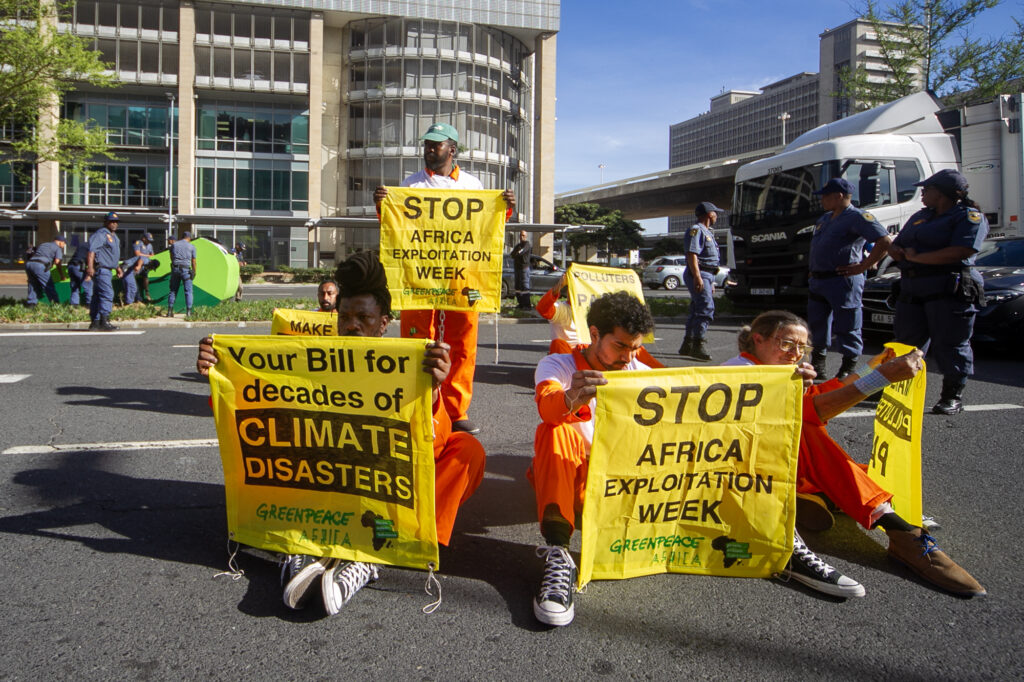
The action, which disrupted the opening of the four-day conference, followed an overnight campaign where activists quietly distributed climate justice flyers under hotel doors of attending delegates describing Africa Energy Week as “Africa Exploitation Week.”
“This gathering is not about Africa’s development it is about corporate profiteering,” argued Cynthia Moyo, Climate and Energy Campaigner at Greenpeace Africa.
“Africa has some of the world’s greatest solar, wind, and geothermal potential, yet these companies are determined to lock us into decades of fossil fuel dependency that benefits shareholders abroad while poisoning our communities.”
The protest highlighted the growing frustration across Africa as the continent faces worsening climate impacts devastating floods in South Africa, prolonged droughts in East Africa, and rising sea levels threatening coastal livelihoods.
Despite contributing less than 4 percent of global greenhouse gas emissions, African countries remain among the most vulnerable to climate shocks.
“The extractive industry has treated Africa like a personal ATM taking resources, leaving pollution, poverty, and climate chaos in its wake,” added Moyo.
“A just transition to renewable energy is urgent, and it must serve African people, not foreign profit margins.”
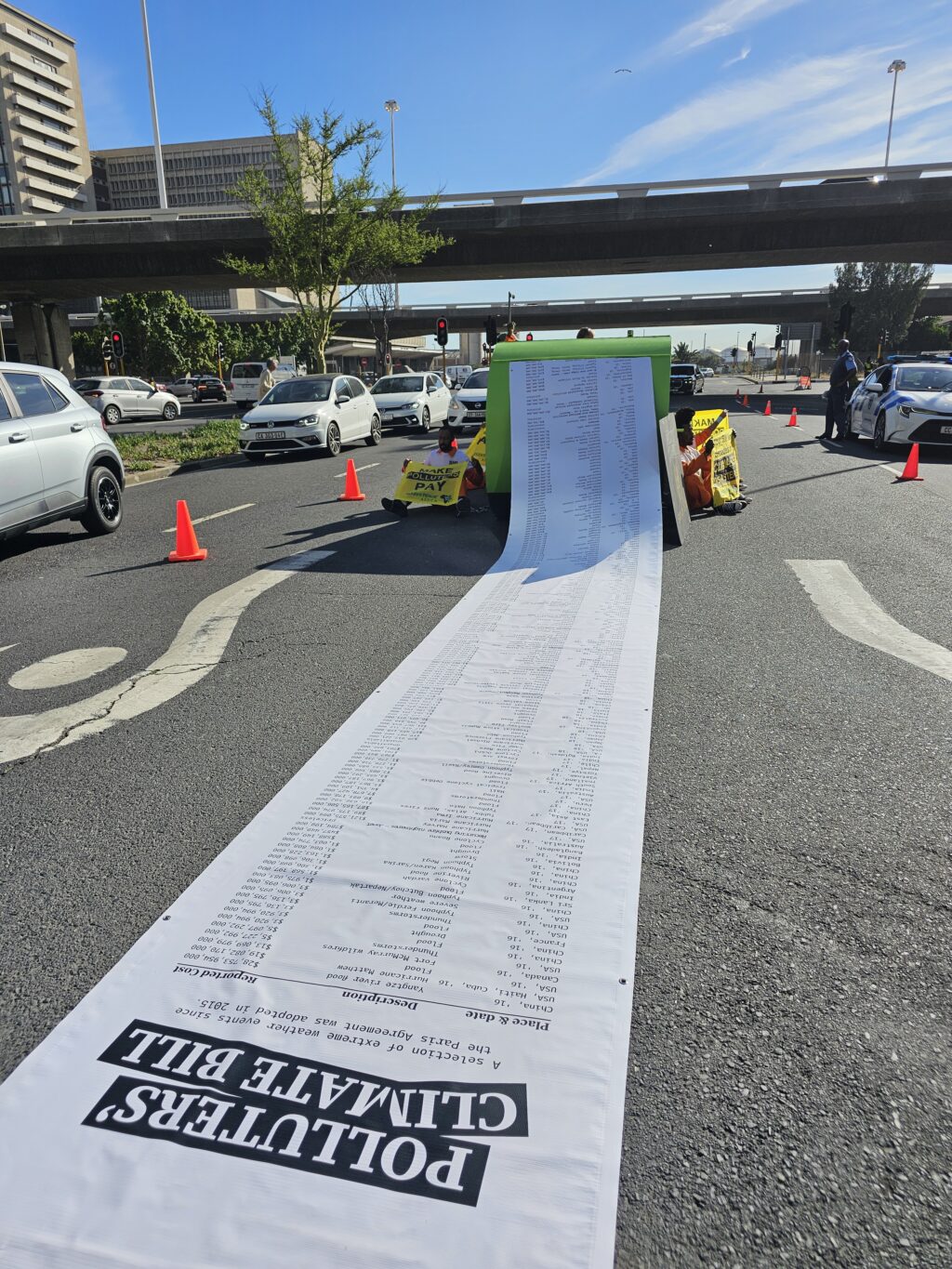
The payment machine symbolised what activists describe as a “mounting climate debt” owed to vulnerable communities, with calls for a Polluter Pays Pact to ensure fossil fuel companies contribute to adaptation measures and loss-and-damage financing.
Despite the heavy-handed police response, campaigners vowed to continue their efforts.
“Executives and their police protection may silence us today, but they cannot escape accountability,” Odayar said.
“The bill has come due. Polluters must pay, or the world will pay a far greater price.”
The Cape Town action forms part of a global wave of climate justice mobilisations leading up to COP30 in Brazil, where loss and damage finance is expected to dominate negotiations.
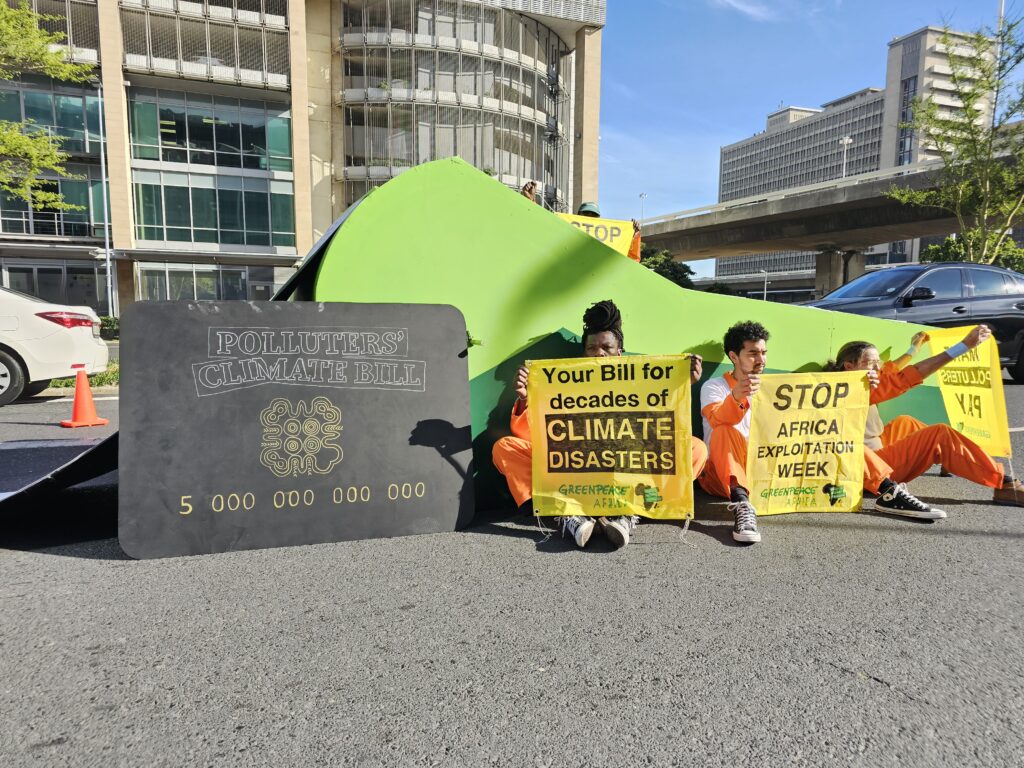


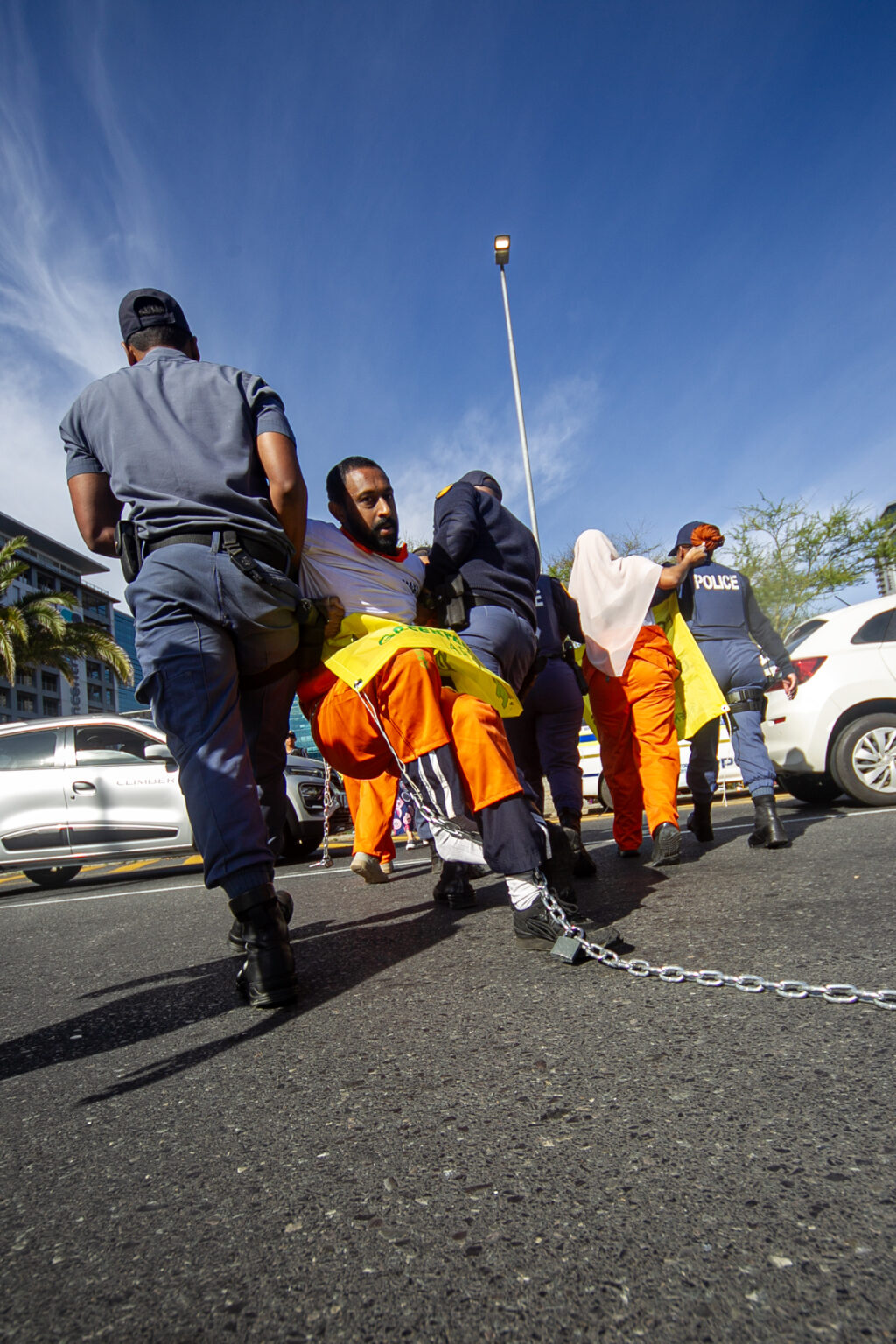
I?¦ve learn several excellent stuff here. Certainly price bookmarking for revisiting. I surprise how much effort you set to create this type of great informative site.